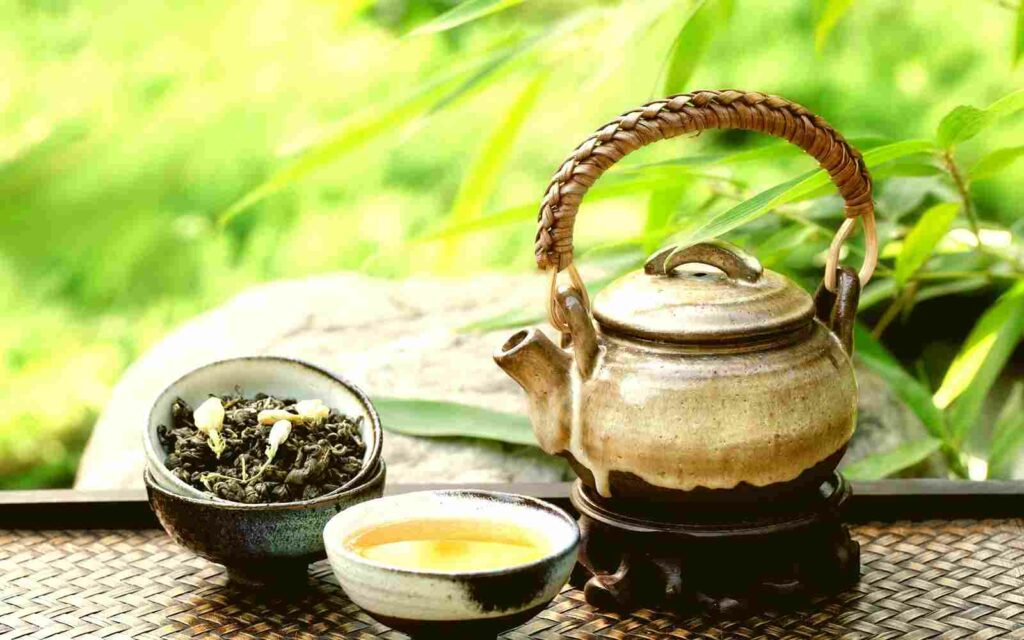Do you suffer from anxiety? If so, you’re not alone. Anxiety disorders are the most common mental illness in the United States, affecting more than 40 million adults. While there are many prescription medications available to treat anxiety, some people prefer to seek relief from natural remedies. In this blog post, we will discuss some of the best herbs for anxiety and how they can help provide relief.
Contents
What Is Anxiety?
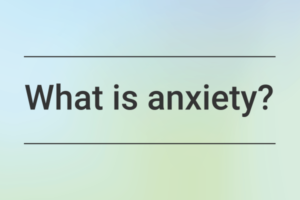 Anxiety is a mental health disorder characterized by worry and fear. It can be mild, moderate, or severe. Anxiety disorders are the most common type of mental health disorder. There are many different types of anxiety disorders, including:
Anxiety is a mental health disorder characterized by worry and fear. It can be mild, moderate, or severe. Anxiety disorders are the most common type of mental health disorder. There are many different types of anxiety disorders, including:
- Generalized anxiety disorder (GAD)
- Panic disorder
- Social anxiety disorder
- Specific phobias
- Obsessive-compulsive disorder (OCD)
The types of anxiety can be numerous and vary in severity. Many people with anxiety experience physical symptoms such as a racing heart, sweating and trembling. Others may have trouble sleeping or concentrating. This condition is however difficult to manage. It even impacts your daily life and normal functioning of the daily work.
But some ways that can help you manage your anxiety. In fact, some people have shown relief in anxiety by using natural herbs and supplements. So you should understand that anxiety is a mental health disorder that can be treated by using natural herbs.
How Do Herbs For Anxiety Work?
When you’re feeling anxious, your body is in a state of fight-or-flight. This means that your heart rate and blood pressure increase, and you might start to feel tense or jittery. Herbs for anxiety can help by soothing these symptoms and calming your nervous system.
Also, one study has found that taking a specific combination of herbal extracts (including passionflower, lemon balm, and lavender) can help reduce anxiety. Because they all work differently, it’s best to talk to your doctor or a qualified herbalist about which herbs might work best for you.
It is often believed that people who choose natural herbs over clinical drugs are looking for a “quick fix.” This is not always the case. People may want to try natural herbs for anxiety because they:
- Believe that natural products are better for their bodies overall
- Do not like the side effects of clinical drugs
- Want to take a more holistic approach
No matter what your reasons are, it’s important to do your research before taking any herbs for anxiety. This guide will cover some of the most popular herbs used for anxiety relief, as well as their possible side effects.
Top 10 Effective Herbs For Anxiety
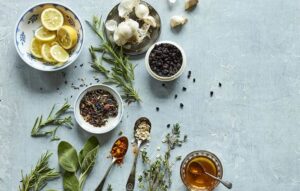 There are a lot of effective herbs for anxiety that can be used to treat the condition. Here are the top ten effective options that might be helpful to you:
There are a lot of effective herbs for anxiety that can be used to treat the condition. Here are the top ten effective options that might be helpful to you:
Chamomile
Chamomile is one of the most popular herbs for anxiety and has been used for centuries to calm nerves and ease anxiety. It is a natural sedative and can be taken in tea form or as a supplement. According to studies, chamomile is just as effective as some prescription medications for anxiety. Because it works as a mild sedative, it is not recommended for use if you are pregnant or breastfeeding.
Lavender
Lavender is another herb that has long been used to treat anxiety and stress. It has a calming effect on the nervous system and can be taken in tea or capsule form. It is one of the popular herbs among people who seek natural remedies for anxiety. Lavender is believed to contain natural compounds that have anxiety-reducing properties.
For example, one study has found that inhaling lavender oil can help to decrease anxiety levels in people who have undergone surgery. Because anxiety is something that anyone develops at any time, it’s important to understand how to deal with it naturally.
Lemon balm
Lemon balm is an herb that belongs to the mint family and has a calming effect on the mind and body. This works through its ability to increase levels of the neurotransmitter GABA in the brain. It contains compounds that have a sedative effect on the body, making it useful for treating anxiety and insomnia.
Lemon balm can be taken in capsule form or as a tea. The recommended dose is 300-500 mg per day. Also, it is important to start with a lower dose and increase gradually as needed. It works best when taken before sleep because it can help you fall asleep by reducing stress.
A study published in Phytotherapy Research found that lemon balm was able to significantly reduce anxiety in a group of people who were taking an exam.
Passionflower
 Passionflower has developed a reputation as an herbal remedy for anxiety. This is because it has calming properties that can help to ease the symptoms of anxiety and insomnia. It is believed that passionflower works by increasing levels of gamma-aminobutyric acid (GABA) in the brain. GABA is a neurotransmitter that helps to regulate mood and promote relaxation.
Passionflower has developed a reputation as an herbal remedy for anxiety. This is because it has calming properties that can help to ease the symptoms of anxiety and insomnia. It is believed that passionflower works by increasing levels of gamma-aminobutyric acid (GABA) in the brain. GABA is a neurotransmitter that helps to regulate mood and promote relaxation.
There is some scientific evidence to support the use of passionflower for anxiety. A review of studies published in the Journal found that passionflower was effective in reducing symptoms of anxiety by an average of 58 percent. If you’re interested in trying passionflower for anxiety, it’s important to talk to your doctor first.
Valerian
This type of herb is commonly used for its sedative effects. It can be taken in capsule form, or as a tea. Valerian is believed to have its roots in ancient Greece and Rome. It is thought to be effective in treating anxiety by working on the nervous system. Because of its sedative effects, it is not recommended to take valerian if you are also taking prescription medication for anxiety.
But it is important to check with your doctor before taking any herbal supplement, as they can interact with other medications. As there might be some side effects associated with valerian, it is also important to start with a low dose and increase gradually as needed.
Kava kava
Kava kava is an herb from the Pacific Islands that has a calming effect on the mind and body. This is due to the presence of kavalactones, which are compounds that interact with the brain to produce a sense of relaxation. This is even more effective when combined with other herbs like chamomile or lemon balm.
Kava kava is best taken in capsule form, but can also be found in tinctures and tea. The recommended dose is 300-400 mg per day. This type of herb is very famous for its ability to relieve anxiety, but it can also cause drowsiness. Therefore, it is best to take this herb at night before bedtime.
Ashwagandha
This herb has a history of being used as a natural remedy for anxiety and stress. It is thought to help the body cope with stress by reducing the levels of the stress hormone cortisol. A small study found that ashwagandha may help reduce stress and anxiety in people with chronic stress.
Ashwagandha is made from the root of the ashwagandha plant. It is available in capsules, powders, and teas. The name itself suggests its effects on the body, derived from the Sanskrit words “ashva,” meaning horse, and “gandha,” meaning smell. The strong odor of ashwagandha is often compared to that of a horse.
Overall, the ingredients in ashwagandha have the potential to be very effective in treating anxiety and stress. However, more research is needed to confirm these effects.
St. John Wort
It is one of the most popular herbs for anxiety and has been used for centuries to treat a variety of mental health conditions. The herb works by inhibiting the reuptake of serotonin, which is a neurotransmitter that plays a role in mood regulation.
There are many studies that have been conducted on the efficacy of St. John Wort and the majority of them have shown that it is an effective treatment for mild to moderate depression. It is important to note that the herb can take up to six weeks to start working and it is not recommended for use in severe cases of depression.
If you are interested in trying St. John Wort, it is important to speak with your doctor first as it can interact with certain medications.
Galphimia glauca
This type of herb for anxiety is also known as thuja, which is a common evergreen. It’s often used in homeopathic remedies and is said to be very effective in treating anxiety and depression. The recommended dosage is 30 drops in water, three times a day.
Moreover, research has shown that galphimia glauca is just as effective as prescription drugs like lorazepam and paroxetine in reducing anxiety symptoms. However, it’s important to note that this herb can cause drowsiness, so it’s best not to take it if you’re driving or operating heavy machinery.
Hops (Humulus Lupulus)
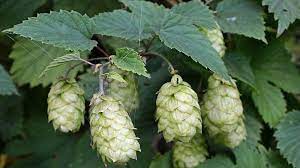 Hops are the female flower of the hop plant and have long been used as a flavoring agent in beer. These are also known for their sedative effects and have been used traditionally to treat insomnia. Today hops are commonly used as an herbal remedy for anxiety and tension. This herb can be taken in capsules or tincture form, or brewed into a tea.
Hops are the female flower of the hop plant and have long been used as a flavoring agent in beer. These are also known for their sedative effects and have been used traditionally to treat insomnia. Today hops are commonly used as an herbal remedy for anxiety and tension. This herb can be taken in capsules or tincture form, or brewed into a tea.
However, this herb should be used with caution if you are pregnant or breastfeeding, as it can cause drowsiness. People with depression should also avoid using hops, as it can worsen symptoms.
Henceforth, these are 10 effective herbs for anxiety that can be used to obtain relief from this condition naturally. If you are looking for an herbal remedy for anxiety, consider using one or more of these herbs. However, it is always best to speak with a qualified healthcare practitioner before taking any herbs, especially if you are pregnant or breastfeeding, or have a medical condition.
Benefits
There are many benefits to using herbs for anxiety relief. Some of these include:
- These are natural and have fewer side effects than many medications prescribed for anxiety.
- Herbal remedies can be taken in a variety of forms, such as teas, capsules, or tinctures, making them easy to take.
- Herbal treatments for anxiety often work more slowly than pharmaceuticals, but they can be just as effective with long-term use.
- They might be in pill form, but don’t let that fool you – these herbs pack a powerful punch when it comes to anxiety relief.
- Herbs for anxiety are believed to be less expensive.
The benefits of natural herbs can be extremely helpful for those suffering from anxiety. Not only are they typically more affordable, but they also have far fewer side effects than most medications prescribed for anxiety relief. It is believed that herbal remedies work more slowly than pharmaceuticals, but they can be just as effective with long-term use.
Therefore, if you are looking for a more natural way to ease your anxiety, consider trying one of these herbal remedies. And you will more likely to find success if you use a combination of different herbs, as each one has unique anxiety-reducing properties. So do not wait longer and give it a try!
Limitations
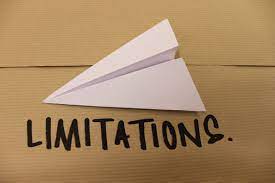 If something has so much to offer benefits, then there are possibilities for limitations as well. When it comes to herbs for anxiety, there might be a few.
If something has so much to offer benefits, then there are possibilities for limitations as well. When it comes to herbs for anxiety, there might be a few.
- Pregnant or breastfeeding women should avoid using any herbal remedies, including those used for anxiety relief, unless directed to do so by a healthcare provider. Some herbs can have negative effects on pregnancy and lactation.
- People with bleeding disorders or taking blood thinners should avoid using some herbs for anxiety relief, as they can further increase the risk of bleeding.
- Herbs can interact with other medications, so it’s important to talk to a healthcare provider before taking any herbal remedies, especially if you’re already taking prescription medications.
- Some people might be allergic to certain herbs. If you experience any negative side effects after taking an herb, discontinue use and speak with a healthcare provider.
- And finally, if you are having severe anxiety or symptoms of panic, it’s important to seek professional help from a mental healthcare provider.
Herbs can be a helpful addition to treatment, but they should not be used as a replacement for necessary medical care. If you’re interested in trying herbs for anxiety relief, speak with a healthcare provider to get started. They can help you choose the right herbs and dosages for your needs.
So keep these limitations in mind before self-medicating with herbs for anxiety relief. And as always, speak with a healthcare professional before starting any new treatment regimen.
Other Natural Tips To Manage Anxiety
If you want to stick with a natural anxiety relief strategy, here are some other things you can do:
Get regular exercise
Exercise releases endorphins, which have mood-boosting effects. Exercise is always considered good for mental health, but it can be especially helpful if you have anxiety. There are various types of exercise and what works for one person might not work for another. You don’t have to join a gym or start running marathons. Just find something active that you enjoy and make it part of your routine.
Yoga, Tai Chi, and meditation
These practices can help you focus on the present moment and let go of anxious thoughts about the future. They can also promote feelings of peace and relaxation. For example, a study of people with generalized anxiety disorder found that eight weeks of Tai Chi significantly reduced symptoms.
Eat a healthy diet
What you eat affects your mood and overall health. Eating an unhealthy diet can contribute to anxiety, so focus on eating plenty of fruits, vegetables, and whole grains. Also, limit processed foods, caffeine, and alcohol. It is important to get enough protein as well because it helps the brain function properly.
Get enough sleep
Sleep is important for overall health and well-being, but it’s especially critical when you’re trying to manage anxiety. A lack of sleep can make anxiety worse and can lead to a host of other problems. Make sure you’re getting enough rest by establishing a regular sleep schedule and sticking to it as much as possible. This can be difficult if you’re dealing with anxiety-related insomnia, but there are a few things you can try to help you get the rest you need.
Take time for yourself
 In today’s time, people are constantly on the go. We are juggling work, family, and social obligations. It can be difficult to find time for ourselves. When we don’t take the time to relax and recharge, our stress levels can increase. This can lead to anxiety and other health problems.
In today’s time, people are constantly on the go. We are juggling work, family, and social obligations. It can be difficult to find time for ourselves. When we don’t take the time to relax and recharge, our stress levels can increase. This can lead to anxiety and other health problems.
One way to reduce stress is by taking time for yourself every day. This can be as simple as taking a few minutes to read your favorite book or taking a relaxing bath. Taking time for yourself will help you to relax and reduce your anxiety levels. Also, you must spend time in nature even for a few minutes. It will relax your body and mind.
So these are some other natural ways to reduce your anxiety levels. And remember, if you are feeling overwhelmed, please reach out to a mental health professional. They can help you develop a plan to manage your anxiety.
How To Choose The Right Herb For Anxiety?
As there are different types of anxiety, there are also different types of herbs that can be effective in treating it. Also numerous other natural treatment options, so it might be difficult to choose the right option for you. But do not worry, we are here to help you out. Below are some tips that can help you to choose the right herb for anxiety, these include:
- Determining the type of anxiety you have: As we mentioned, there are different types of anxiety and each one might respond better to a specific herb. For example, if you have social anxiety, herbs like lemon balm or passionflower might be more effective than others.
- Check for possible interactions: Some herbs can interact with certain medications, so it is important to check for possible interactions before taking anything.
- Start with a low dose: When trying a new herb, it is always best to start with a low dose and see how your body reacts to it. You can then increase the dose if needed.
- Consult with a professional: If you are unsure about which herb to take or how to take it, it is always best to consult with a professional. They will be able to help you choose the right herb for anxiety and also give you advice on how to take it.
- Take your time: Do not rush into taking an herb for anxiety. Take your time to research and consult with a professional before making a decision.
We hope that these tips will help you choose the right herb for anxiety. If you are looking for a natural way to treat anxiety, herbs can be a great option. But it is important to choose the right herb for anxiety and also to take it in the right way. By following the tips above, you will be able to find the right herb for you and get the most out of it.
Remember, there is no one-size-fits-all solution and what works for one person might not work for another. But by taking your time and doing your research, you will be able to find the right herb for you.
Conclusion
Conclusively, herbs for anxiety are a natural and effective way to treat anxiety. They are safe for most people to take and have few side effects. And studies have also suggested that they can be just as effective as some prescription medications. So, if you’re looking for an alternative to traditional anxiety treatments, consider trying one or more of these herbs.
But keep in mind that herbal remedies are not a substitute for professional medical care. If you have severe anxiety or other mental health issues, talk to your doctor about the best treatment options for you.
You can also contact Therapy Mantra for affordable online counseling services to help you choose the right option for you. We have a team of professional therapists who can provide you with the support and guidance. Contact us today to learn more about our services. You can also book an online therapy session or download our free Android or iOS app.
